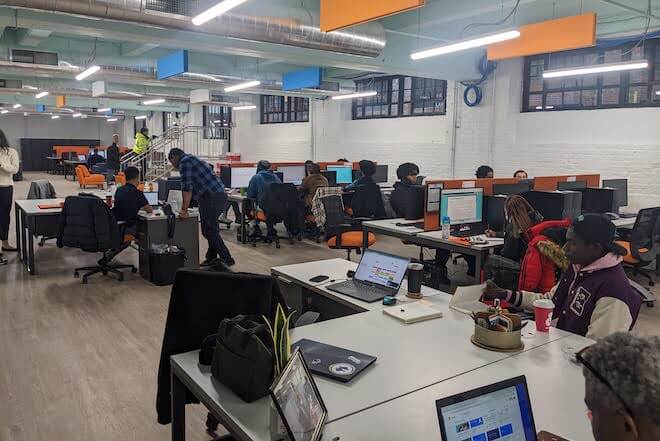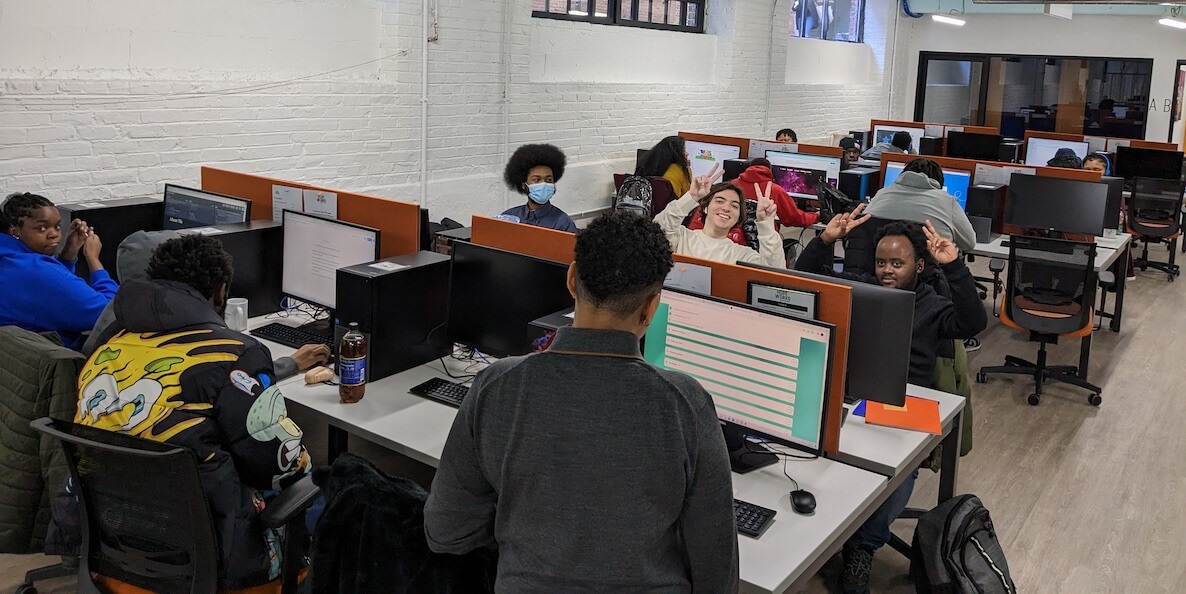It’s easy to look at headlines about Philly and feel despair.
The city has reached 500 homicides for the second year in a row. The opioid epidemic is still raging in Kensington (and elsewhere). And Philly remains America’s poorest large city, with about 23 percent of residents living below the federal poverty level.
But Dan Rhoton, executive director of the Camden, NJ-based nonprofit Hopeworks, sees reason for, well, hope in the City of Brotherly Love.
Rhoton remembers 2012 when it wasn’t Philly, but his city that was making headlines. Back then, Camden was widely considered America’s poorest and most violent city. They set a local homicide record in 2012, with 59 murders. NBC’s Brian Williams visited Camden with his show Rock Center in 2013 to gawk at its problems. Later that year, Rolling Stone dubbed the city “apocalyptic” and the “most desperate town” in the U.S.
“Camden was the unsolvable problem in 2012, 2011, 2010,” Rhoton says.
“You change lives one at a time, but you need a machine to end poverty,” Rhoton says. “We’ve been building a poverty-ending machine.”
Slowly, things started to turn around. In 2013, Camden disbanded its entire police force. Then, the force introduced better, less aggressive policing tactics, rebuilding community trust and reducing homicides 65 percent over 10 years. In 2020 and 2021, when crime ballooned nationwide, the city saw its lowest crime level in more than 50 years, WHYY reported.
Hopeworks, meanwhile, brought job training and employment programs to Camden. The 23-year-old nonprofit helps train young people aged 17 to 26 for jobs in the tech sector and then partners with employers to get them jobs. In the past 10 years, they’ve helped over 900 people secure work with average starting salaries of $43,000 per year. Once trainees enter these good jobs, they tend to keep them. The program has a 12-month retention rate of close to 90 percent.
Now, an even bigger ambition
Now, Rhoton has his eyes set on an even bigger, and some believe unsolvable, problem: reducing poverty in Philly. Hopeworks received a $600,000 investment from the GreenLight Fund to bring the organization’s proven model to Kensington. They opened a second location on J Street in mid-December and plan to train 50 participants for tech jobs with their employer partners in the first year, and double the number of people they can help in the second.
“Hopeworks loves being in a space in places where folks say that problems are unsolvable,” Rhoton says. “We love being part of proving them wrong.”
Hopeworks launched in 1999, when a group of three churches in Camden set out to launch an employment training program. Their three-month, paid training program teaches trainees necessary skills by giving them hands-on experience working for Hopeworks’ three businesses: a web design firm, a data organization and visualization service, and a trauma training program for businesses.

After the training period, Hopeworks helps connect students with internships and full-time jobs outside the organization, with employers ranging from New Jersey’s American Water to Philadelphia’s Comcast NBCUniversal. Each year they work with between 20 and 24 different companies to help place Hopeworks candidates in jobs. Throughout the training process, young people receive academic and career coaching services and housing support services through the company’s C.R.I.B. program. That way, they have many of the tools they need to complete the training.
The program has long pondered expanding. In 2017, they partnered with JEVS Human Services to conduct a small, five month pilot program in Philly. After that program ended, they realized it was often easier and less expensive for Philadelphia students to get into Camden than to other parts of the city.
But as interest in Hopeworks continued to grow, Rhoton found that one office could not support all of the young people in Camden and Philly who wanted to learn the tech skills necessary to get jobs that paid living wages. What’s more, employers in the technology sector were clamoring for new talent. At local tech meetups over the last few years, Rhoton has talked with company after company looking to grow its workforce. He points them to Hopeworks’ trainees.
“There’s only a labor shortage if you keep looking in the same places you’ve always looked,” he says. “If you actually start doing things a little differently, there are plenty of folks that are ready for opportunity.”
“Hopeworks loves being in a space in places where folks say that problems are unsolvable,” Rhoton says. “We love being part of proving them wrong.”
That’s where the GreenLight Fund comes in. The national nonprofit helps organizations with proven track records of success open locations in new cities. This year, the Philadelphia chapter wanted to bring an organization that helped address digital inequities to the city. They searched the country and found that Hopeworks, right across the river, was a perfect fit.
“We essentially just landed on Hopeworks as the organization that we’re going to invest in because of their local sustainability and their proven model,” says Felicia Rinier, executive director for the Philadelphia GreenLight Fund.
Once GreenLight announced that they were helping bring Hopeworks to Philly, other organizations jumped in to help support the launch. Comcast, JP Morgan & Chase, The NBA Foundation, the Connelly Foundation and Dell Technologies have all offered additional financial support for the launch.
With the financial resources in hand to support a second location, Hopeworks began looking for a place to open a second office. They settled on Kensington for three reasons: its proximity to the El, making it easy for trainees to travel from across the city; nearby tech companies located in Fishtown and Northern Liberties; and the fact that many neighborhood residents struggle with poverty and are looking for better job opportunities.
“The first thing we learned in Camden is if you want to help, if you want to work with folks experiencing poverty, you can’t do it from Center City,” Rhoton says. “You have to be proximate to poverty.”
Hopeworks’ model, too, is adept at managing the challenges Kensington, and Philly more broadly, face. The nonprofit uses an approach known as the Sanctuary Model, which helps participants confront some of the trauma they may have faced, whether from poverty, violence or drug crime.
“Kensington has real issues,” Rhoton says. “Trauma-informed care is this acknowledgment when you do work, you actually work with humans that have history and emotions.”
The Kensington location opened its doors December 15. By the second day, trainees who used to commute from Philly to the Camden location were training new recruits on basic web development and coding skills. By day four, the Kensington location already had enough trainees to fill its 25-seat training setup.
Rhoton hopes that one day the Philadelphia location will have the same effects on the city that its predecessor in Camden has had: tackling poverty by helping young people find good, high-paying jobs.
“You change lives one at a time, but you need a machine to end poverty,” Rhoton says. “We’ve been building a poverty-ending machine.”
![]() MORE ON PHILLY’S TECH JOBS FUTURE
MORE ON PHILLY’S TECH JOBS FUTURE




